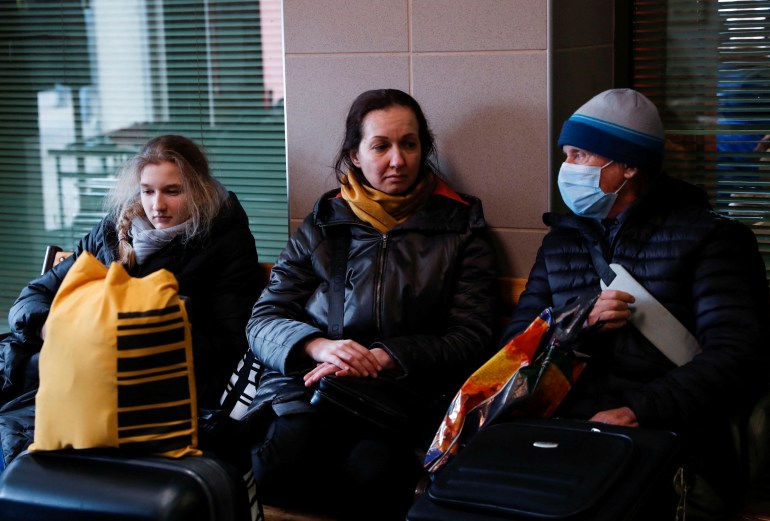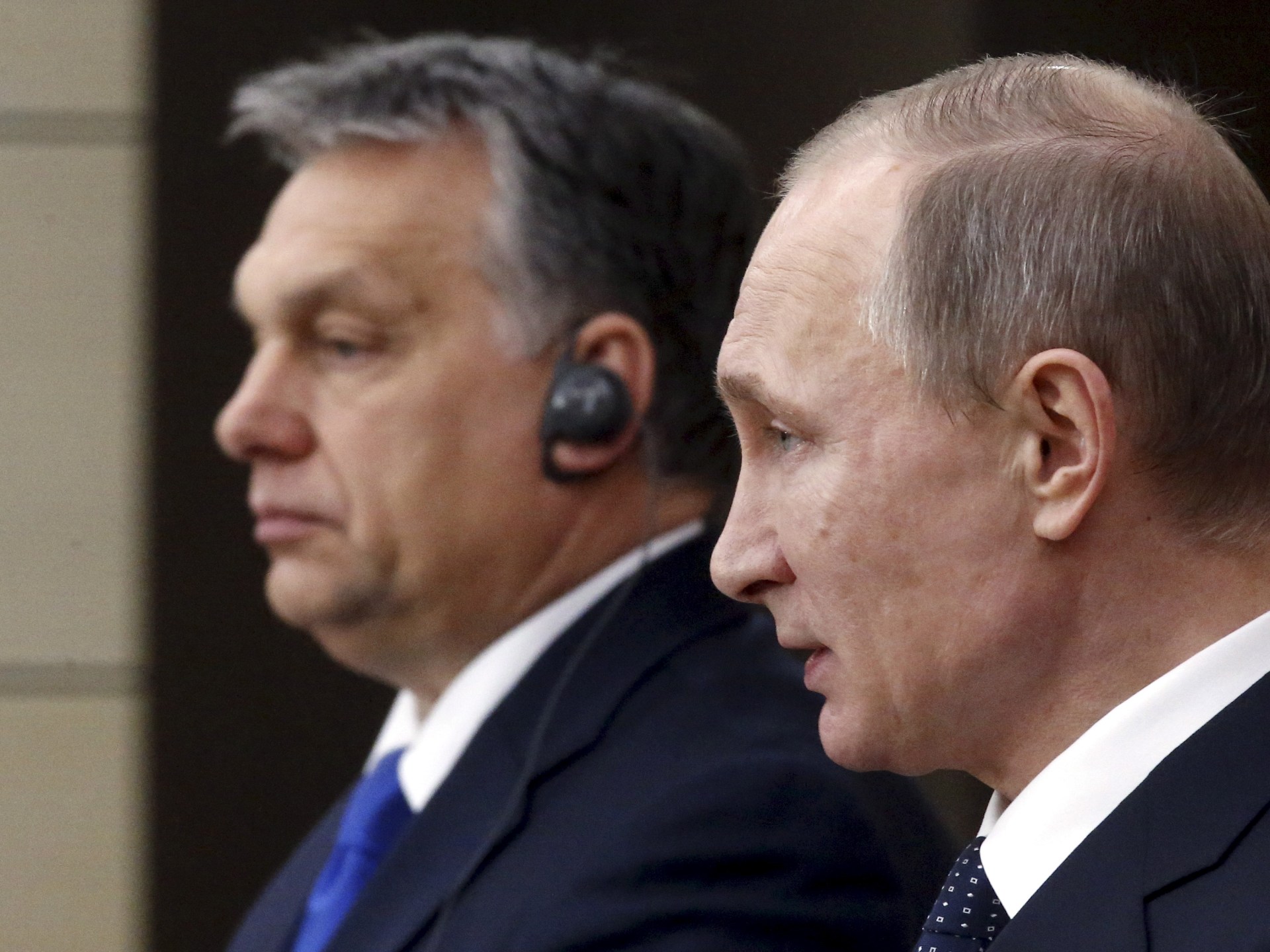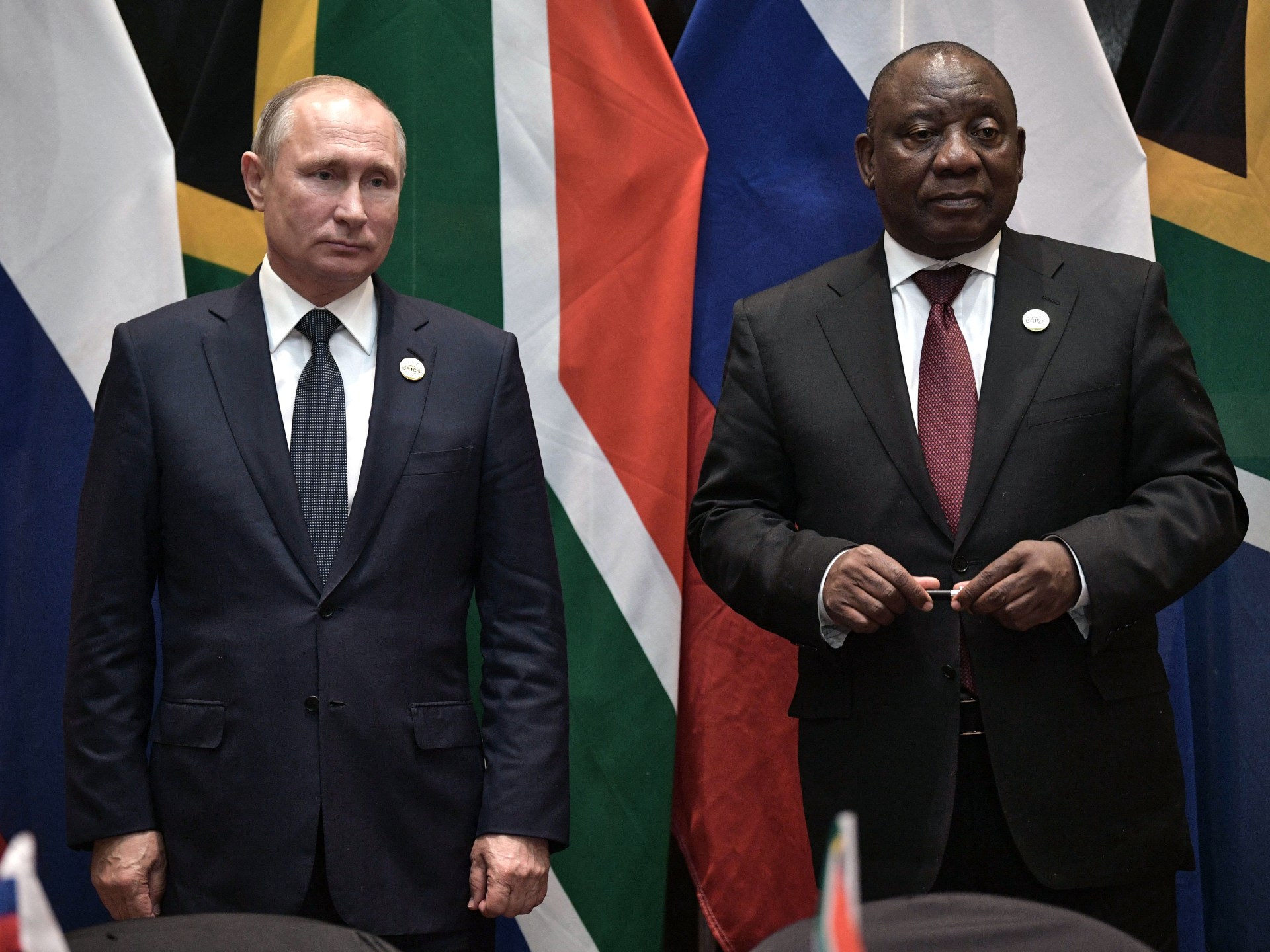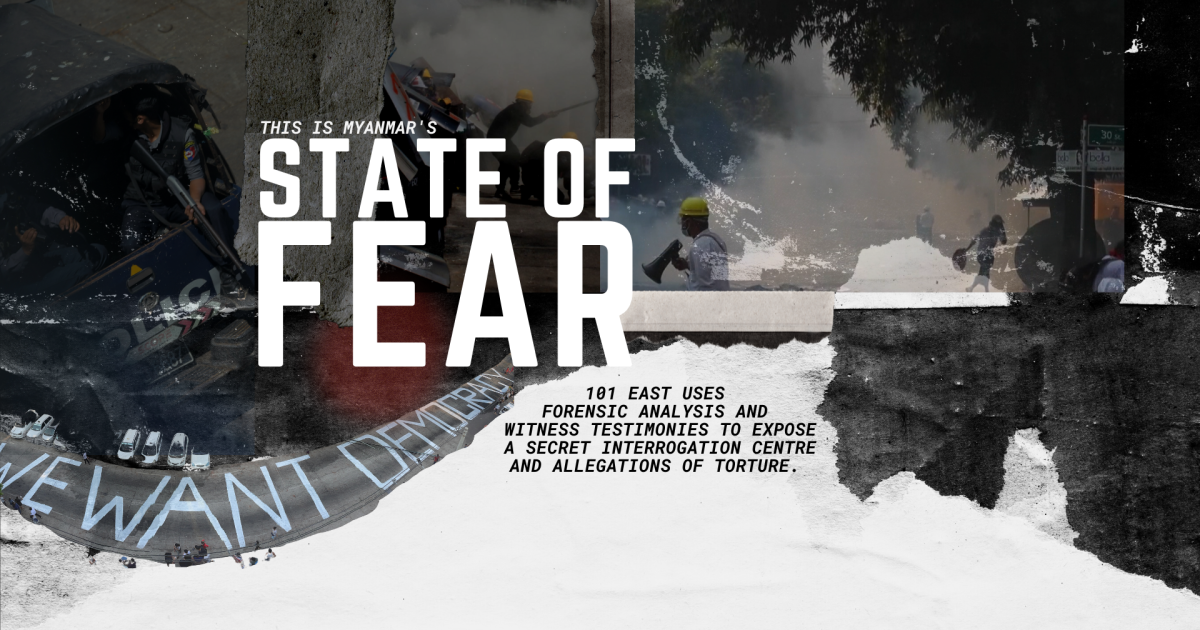Hungary’s loyalties tested as Russia’s war in Ukraine grinds on | Russia-Ukraine war News
Hungary’s populist leader Viktor Orban has been playing the West off against Russia and China for years, but as the Ukraine war drags on, the pressure is rising, according to analysts.
“The Hungarian government continues to maintain close relations with Russia and supports the Russian war machine in various economic ways,” US Ambassador David Pressman said on April 12.
Washington backed these harsh words up by unveiling sanctions against the Budapest-based, Russia-linked International Investment Bank and three of its directors.
The measures marked a new low in relations between Hungary and its Western partners. However, worse could be to come.
Reports suggest that the announced measures are a shot across Budapest’s bows, intended to deter the European Union and NATO country to pivot away from Russia and China.
And Hungary’s ongoing refusal to ratify Sweden’s membership of NATO is seen as the trigger.
“With this action,” said Pressman, “the United States is demonstrating that we will take action in response to Hungary’s choices.”

Orban has spent years resisting or evading what he calls the diktat of Washington and Brussels.
His stance and the corruption and weak rule of law in Hungary have seen billions in funding frozen as the EU seeks to get him to play ball.
But while the Hungarian leader basks in his reputation as a troublemaker, Russia’s invasion of Ukraine has raised the stakes.
Orban has doubled down though, refusing to break with Russian President Vladimir Putin. And amid rising tension, his county is now blocking NATO expansion, alongside Turkey.
Following in Ankara’s steps, Hungary ratified Finland’s membership in late March, after a seven-month delay. But Sweden is still awaiting the green light from the pair.
Budapest has said the parliament, which in other cases acts as a rubber stamp for the premier, refuses ratification due to Sweden’s criticism of the Hungarian government.
Orban’s spokesman stuck strictly to this script as he told Al Jazeera that the premier has stated clearly that Sweden should ultimately be admitted to NATO.
Parliament’s hesitation is due to “a declared and open hostile attitude [that] has been going on for years”, said Zoltan Kovacs.
He also suggested that Swedish officials have urged the EU to halt funds to Budapest in order to “pressure the Hungarian government into submission”.
Kovacs did not respond, however, to queries concerning alternative theories regarding the reasons for the delay, nor the potential effect on relations with NATO partners.
But Daniel Hegedus at the German Marshall Fund of the US suggests there are several factors behind the gambit.
Orban hopes to show EU partners that their criticism of Hungary has a political cost, and also convince them to unfreeze the funds, Hegedus said.
But there is also a train of thought that Orban’s growing rap sheet results from a long-held and overarching belief that the power of the West is waning.
In other words, while Hungary needs the EU and NATO to secure its sovereignty, Orban sees illiberal giants such as China, Russia and Turkey as the future, Hegedus argued.
“It’s a long-term investment,” he told Al Jazeera. “He’s providing a strategic service for Russia via these small interventions. He’s also keeping Turkey aware that Hungary is a credible partner ready to take hits in order to support it.”

Orban’s Western partners have been tolerating his disruptions since he took power in 2010, either due to persisting belief that Budapest is a loyal partner at heart, or because the EU and NATO have few tools to rein him in.
The EU and the US have long warned of alarming levels of politically-linked corruption in Hungary and worries over the state of democracy and the rule of law. Brussels has suspended billions in EU funding in a bid to push Orban to remedy these problems.
But at the same time, diplomats in Brussels have suggested that while Orban acts up for the benefit of his electorate at home, he mostly toes the line when it matters.
Meanwhile, he has been far more circumspect in questioning NATO policy.
Yet following Russia’s invasion of Ukraine, they have begun to wonder where his loyalties lie.
Budapest has insisted on carving out exceptions to EU sanctions on Russian energy, and in April even agreed to a new deal to deepen ties. Financial aid to Ukraine has also been delayed, and Orban has refused to allow weapons to cross his country on their way to Kyiv.
Capping this off, the delay in ratifying Finland and Sweden’s NATO membership has raised concern over Budapest’s loyalty to the alliance, sending tension soaring.
“There is a clear communication war against the US,” warned István Ujhelyi, an MEP from the opposition Socialist Party. “Our Western allies trust us less and less and now. The government has effectively isolated itself within the transatlantic alliance.”
Amid the rising temperature, Hegedus warned Budapest is overplaying its hand.
“The EU states have ignored Hungary’s views on the Putin arrest warrant, and 17 of them have joined the legal case against Orban’s LGBT law,” he said. “That suggests Hungary’s hopes of forcing its partners to back off is not working.”
NATO has started showing similar indifference.
For five years, Orban had been successfully blocking high-level meetings with Ukraine, pointing at claims of poor treatment of the Hungarian minority in the neighbouring country, but in early April, the alliance convened the NATO-Ukraine Committee regardless.
US sanctions test Hungary’s loyalties
The US sanctions are the clearest signal yet that Hungary is now being viewed in a new light in Western capitals.
The IIB was an obvious target. Controversially invited to Budapest in 2019, it has since been viewed by Western security services as a Russian espionage hub.
However, Washington is reportedly preparing further measures, which will target Orban’s government itself.
A source at an institution linked to US security structures, who spoke on condition of anonymity, told Al Jazeera that Washington has been working on targeting members of the government under the Magnitsky Act – a sanctions format aimed at human rights offenders or those involved in significant corruption – for some months.
The likely targets, they suggested, would include oligarchs viewed as Orban’s “bagmen”, as well as government officials.
“This is a small, but very significant diplomatic signal for Hungary that there is a limit to how long they will tolerate the policy of separate paths,” said Attila Mesterhazy, a former MP and president of the NATO Parliamentary Assembly. “In live situations, they don’t like anyone playing with security issues.”
The increase in pressure has quickly seen Orban responding.
Just a day after the sanctions were unveiled, Kovacs announced that Hungary will withdraw from the IIB.
❗️Ministry for Economic Development: Hungary to quit International Investment Bank.
Pursuant to measures announced on 12 April 2023, the United States of America placed three senior officials of the Budapest-based International Investment Bank on a sanctions list. The… pic.twitter.com/2AKhBlxsUL
— Zoltan Kovacs (@zoltanspox) April 13, 2023
“They got the message,” Mesterhazy noted.
It is also anticipated that Budapest will ratify Sweden’s NATO membership soon. Turkey is expected to do so following elections in May, and Hungary is unlikely to stand alone on such a vital issue.
“That wouldn’t be sustainable,” said Hegedus. “It would be tantamount to foreign policy suicide.”
But by then, Orban will have illustrated his like-mindedness to peers in Ankara, Beijing, and Moscow, as well as convincing his voters at home that – despite the episode really proving Hungary’s dependence on the EU and NATO – he is a powerful leader ready to stand up for the country against the world’s largest powers.
And then, as so often, he will likely wait for the next opportunity to lunge for some leverage with a casual wave of his EU or NATO veto.
“When he meets a brick wall he backs off,” said Mesterhazy. “And then he starts again.”




